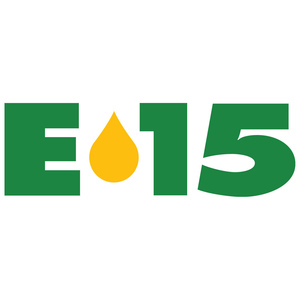RFA campaign amplifies push for year-round E15

April 11, 2022
BY Renewable Fuels Association
A new campaign by the Renewable Fuels Association encourages consumers to call on their elected officials for immediate action to allow the continued sale of E15—the lowest-cost, lowest-carbon fuel available at the pump—throughout the summer. Due to a lawsuit filed by oil refiners, retail stations in most of the country will be forced to stop selling E15 on June 1. But swift action by the Biden administration would ensure consumers continue to have access to E15 throughout the summer.
Starting today, RFA is sponsoring advertisements that will run on hundreds of radio stations in 19 states, with a focus on the Midwest. The ads encourage listeners to contact their lawmakers and the Biden administration to urge immediate action to allow for continued sales of E15. RFA’s multidimensional effort also includes digital ads in Morning Consult’s Washington and Energy newsletters, which are read daily by policymakers and influencers inside the Beltway. In addition, RFA has anchored a countdown to June 1 on its website home page, linking to the call to action and more information on the savings to consumers and the importance to energy security that year-round E15 provides.
Advertisement
“As American families continue to struggle with high gas prices, there’s a simple solution that can immediately relieve their pain at the pump: increasing the availability of renewable fuels and allowing year-round sales of lower-cost E15,” said RFA President and CEO Geoff Cooper. “More ethanol means more savings at the pump, as ethanol has recently been selling for nearly $1 per gallon less than wholesale gasoline. As war in Ukraine continues to roil global energy markets, we need to strengthen our nation’s energy security, and expanding the use of low-carbon renewable fuels like ethanol is the right move at the right time. We are pleased to hear the Biden administration is considering options to allow expanded E15 sales, and we remain hopeful that this issue can be resolved before the start of summer.”
The E15 blend has typically been priced 15-25 cents per gallon less than regular gasoline (E10), with the savings reaching as much as 50 cents per gallon in some cases, according to e85prices.com. To show ethanol’s cost-saving benefits, a new social media campaign launched by RFA encourages drivers to post images of gas pumps showing E15 savings on Twitter. Drivers posting these photos are entered into a weekly drawing for a $50 gas card.
Advertisement
Expanding the availability of renewable fuels like ethanol—and E15 in particular—is very popular among consumers who are concerned about high gas prices and energy insecurity, Cooper said. In late March, RFA conducted a survey with Morning Consult, reaching more than 2,000 registered voters nationwide. The survey found that more than four out of five voters wanted to see more renewable fuel production and nearly three in four voters support increasing sales of the E15 ethanol blend.
Related Stories
CountryMark on July 22 celebrated the completion of more than $100 million in upgrades at its refinery in Indiana, including those related to soybean oil storage. The facility produces renewable diesel via coprocessing technology.
ATOBA Energy and Air Moana are partnering to implement scalable solutions for the supply of SAF. The collaboration aims to ensure long-term SAF availability while supporting local initiatives to develop sustainable fuel production in Tahiti.
While final IRS guidance is still pending, the foundation of the 45Z program is well defined. Clean fuel producers should no longer be waiting; they can now move forward with critical planning and preparation, according to EcoEngineers.
Neste Corp. on July 24 released second quarter results, reporting record quarterly renewable product sales volumes despite weaker margins. SAF sales were up nearly 80% when compared to the first quarter of 2025.
Valero Energy Corp. on July 24 released second quarter results, reporting a profitable three-month period for its ethanol segment. The renewable diesel segment posted a loss, but the company’s new sustainable aviation fuel (SAF) unit operated well.
Upcoming Events










